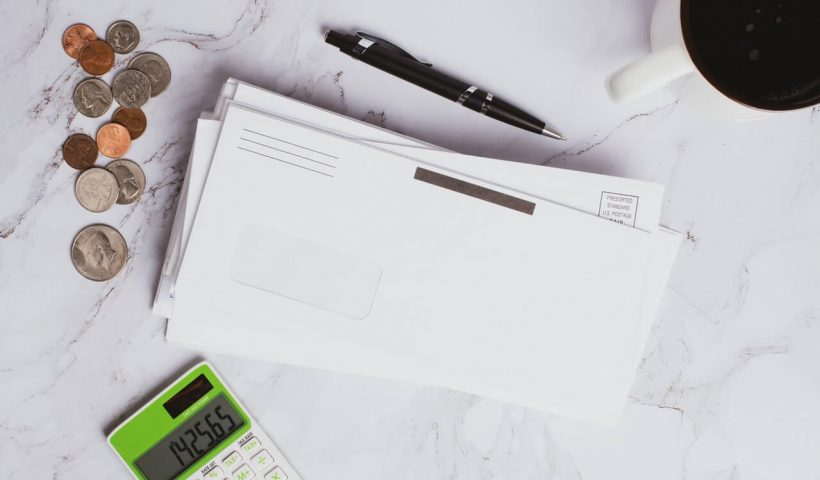Bookkeeping for a sole trader

Bookkeeping understood as simply inputting your business records into a bookkeeping system can seem to be an easy task. However, combined with tax rules it can actually pose a bigger challenge, which could cost you hours of lost sleep and money paid in taxes if done incorrectly. There’s a reason why there are separate qualifications to become a professional bookkeeper. Good news is bookkeeping for a sole trader is generally less complex than bookkeeping for a limited company. But you have to understand certain rules regardless of whether you’re going to do it yourself or outsource bookkeeping to a qualified bookkeeper.
Bookkeeping for a sole trader - important rules and useful tips
You and your business are one person
As opposed to a limited company, self-employment means that you and your business are treated as one person. In practice it means that you are fully and personally liable for any debts that your business generates. A lack of separation between you and your business poses a very big risk, mainly mixing your business records with your personal spending.
When doing your self-assessment tax return you can only include your business costs as your allowable expenses. You need to be very organised to be able to keep track of what is business and what is personal. If you don’t know where to start, you can ask a professional bookkeeper for help. This can be a one-off service, where they help you set things and systems up and do some basic training with you. Our friendly Oxford bookkeeping team will be happy to assist you with this. Just get in touch with our professional bookkeepers in Oxford.
Do you need a separate business bank account or not?
There’s no legal requirement for a self-employed person to have a separate bank account. However, the real question is not whether you need but whether you should set up a separate bank account for your business.
Some banks may not allow you to use a personal bank account for business purposes, so be careful. Even if your bank is okay with this, you should still consider having a separate bank account. The biggest benefit is a simplicity and efficiency of doing sole trader bookkeeping. Our Oxford bookkeepers can tell you from experience that doing bookkeeping for a sole trader with a separate bank account takes twice less time than for a sole trader that mixes everything together.
If you’re going to implement accounting software into your business, for example Xero accounting software, you will also be able to create live bank feeds and import your bank transactions automatically. How super easy sole trader bookkeeping will be with a feature like this?
How should you record your business transactions?
It may seem simple to do your own accounts when self-employed. You just take your bank account and list all your income and expenses. Sounds great but, yes, there is a but. How the actual bookkeeping for a sole trader is done depends on the accounting method used.
Yes, looks like things have to be sometimes complicated I’m afraid. So you have two accounting methods to choose from- traditional accounting method (called also accrual accounting) and cash-basis accounting. Which accounting method you’re going to use is not necessary purely a matter of preference.
Cash accounting method can be used by sole traders and partnerships with a turnover not exceeding £150,000 per year. This is a combined turnover from all of your self-employed businesses. A traditional accounting method can be used by everyone (excluding limited companies and limited liability partnerships) regardless of whether you are below or above £150,000.
If you’re going to use the cash accounting method, then your method of analysing your bank statement will work for sole trader bookkeeping. This method is simply based on the actual cash movements within your business. If you haven’t received the money or haven’t paid anything yet, it simply won’t be reflected in your bookkeeping system.
The traditional accounting method means you record your income and expenses when it’s earned or incurred. When the payments were received or made is irrelevant for doing your self-assessment tax return.
Example
- Tax year runs from 6th April to 5th April.
- You received an invoice from a supplier on 25th March 2021.
- You paid this invoice on 25th April 2021.
- For your self-assessment tax return this cost will be included in tax year 2020/2021.
We’ve got you covered
Looking for help with your self-Assessment tax return?
Should you use accounting software?
Whether to implement self-employment accounting software in your businness, will depend on your business complexity and the volume of your transactions. Excel can work perfectly fine if you don’t have that many transactions. It can be easy to manage. However, once you start expanding, Excel poses certain risks and is more prone to errors. Our bookkeepers from Oxford recommend implementing accounting software in this situation.
Accounting software can automate many things for you. This is super helpful because a growing business is more demanding in all of its areas, so you want to make sure you minimise your admin time. We wrote a separate article about 4 tasks you should automate in Xero accounting software.
Also, if you are a VAT-registered business above the VAT registration threshold, you are required to submit VAT returns digitally. This doesn’t mean you can’t use Excel anymore, but you will need bridging software that will let you file VAT returns digitally from your spreadsheets. Accounting software can be a better choice in this case. It also makes it easier to review your VAT returns before you submit them to make sure there aren’t any errors.
What records does a self-Employed person need to keep?
Anything that is business related. However, if you are claiming part of the costs that are also personal, you will need these records as well. An example could be a home electricity bill if you’re claiming for working-from-home expenses for self-employed. Make sure you keep things like this as well. Business records you will need to keep for both your tax return and to do your bookkeeping can include:
- Purchase invoices
- Sales invoices
- All receipts
- Bank statements
- Bank slips
- Till rolls
- Cheques
- PAYE records if you are also employed somewhere else
- Your personal income records
Remember that a good filing system and regularity is the key for your success with correct bookkeeping. There are plenty of useful bookkeeping tools to help you, so you don’t have to do every single bit manually. You can also outsource to a professional bookkeeper. Our bookkeepers in Oxford will be happy to assist you with your sole trader bookkeeping needs.
How long does a sole trader need to keep business records for?
There’s a legal requirement for sole traders to keep their records for at least 5 years after the 31st January submission deadline of the tax year they relate to. If there is an ongoing investigation regarding your tax matters, you will need to keep your records longer. If you’re VAT registered, you will need to keep your VAT records for at least 6 years. If you have to comply with Making Tax Digital, you need to keep digital records.
Why not get in touch with our professional and experienced bookkeepers in Oxford today to see how they can help you and your business achieve its potential.

Your Accountant in Oxford
Oxford Office
Joanna Bookkeeping
The Wheelhouse Angel Court
First Floor, Angel Court
81 St Clements St
Oxford
OX4 1AW
Connect
joanna@joannabookkeeping.co.uk
01865 591952





